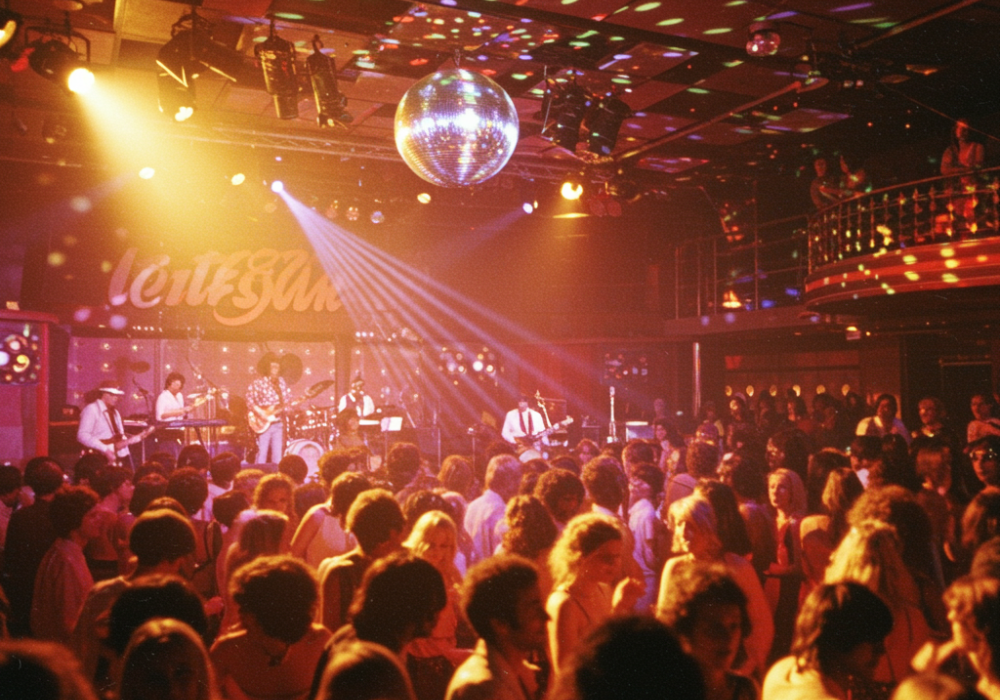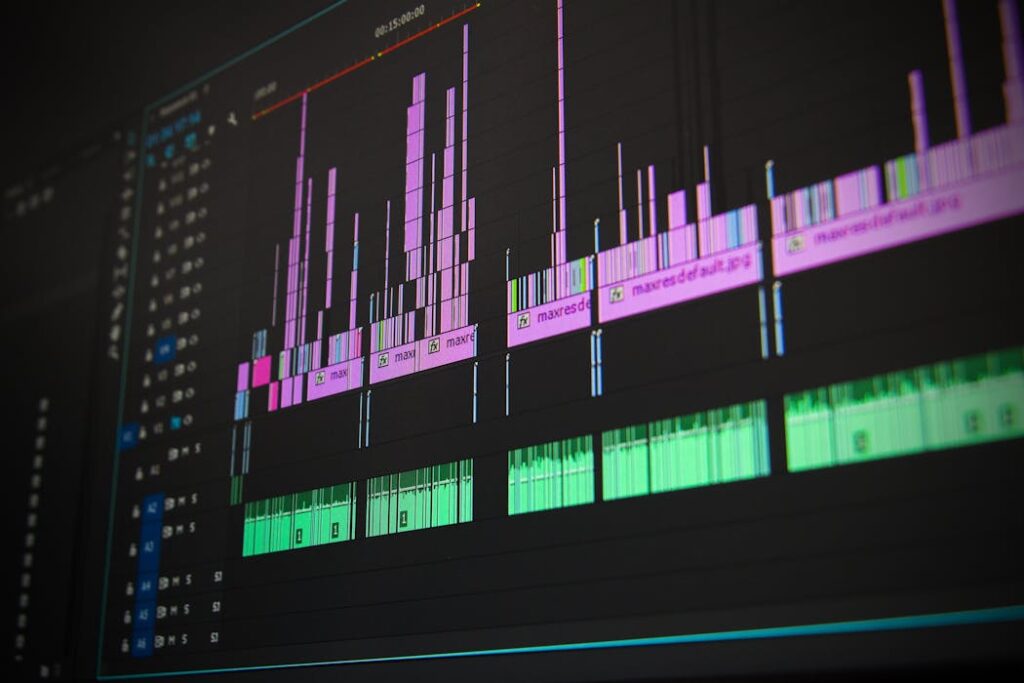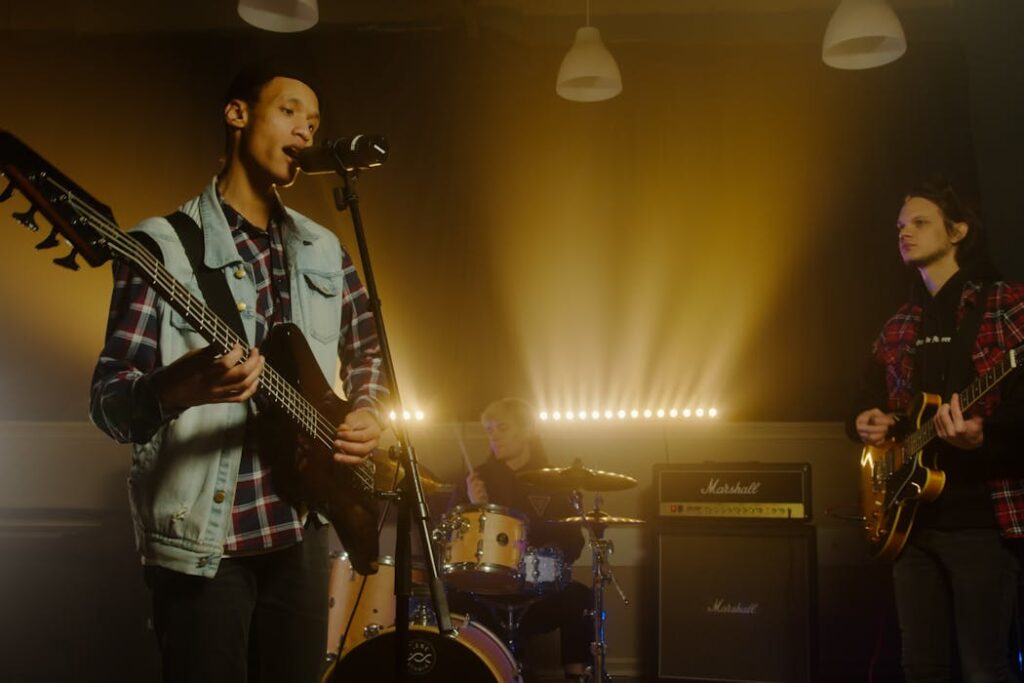If disco had survived the 1980s backlash, today’s music might sound—and look—very different.

When disco exploded in the 1970s, it wasn’t just a musical movement—it was a social and cultural revolution. Originating in Black, Latin, and LGBTQ+ dance clubs, disco celebrated rhythm, freedom, and inclusivity. By 1978, it dominated radio, film, and fashion, producing global icons like Donna Summer, the Bee Gees, and Gloria Gaynor. But after the “Disco Demolition Night” backlash of 1979, the genre’s mainstream popularity collapsed almost overnight. Still, disco’s influence never truly disappeared. If disco had never died, the global music scene—and much of modern pop culture—might look very different today.
1. Pop Music Might Have Stayed More Dance-Oriented

If disco had maintained its mainstream hold, pop music in the 1980s might have evolved with a stronger emphasis on rhythm and groove. Disco’s four-on-the-floor beat and layered arrangements defined late-’70s production styles.
Instead, after its fall, the 1980s saw a pivot toward synth-pop, new wave, and rock, as shard by The Shorthorn. A continued disco dominance could have delayed or softened that shift, keeping live instruments, string sections, and horn-driven arrangements at the center of pop production.
2. Electronic Dance Music Might Have Evolved Sooner

Disco’s DNA lives on in electronic dance music (EDM), particularly in house and techno, which emerged in the early 1980s from Chicago and Detroit’s club scenes. Those genres directly built on disco’s pulse and its use of drum machines and sequencers.
Had disco not suffered a backlash, mainstream audiences might have embraced electronic dance music earlier. The fusion of disco’s soulfulness with early synthesizers could have created global club movements a decade ahead of schedule, Medium.com reported.
3. The 1980s Rock Revival Might Have Been Less Dominant

The “death of disco” created space for rock’s commercial comeback. Artists like Bruce Springsteen, Queen, and U2 thrived in part because radio and record labels shifted away from dance-oriented genres.
If disco had stayed popular, record executives might have continued prioritizing dance-floor hits over guitar-driven anthems. Rock would still have flourished—but perhaps without overshadowing funk, R&B, and dance in the mainstream charts, as stated in BBC.
4. LGBTQ+ Visibility in Music Could Have Expanded Sooner

Disco was one of the first genres to openly celebrate queer culture. Clubs like Studio 54 and Paradise Garage gave rise to an expressive, inclusive nightlife that empowered LGBTQ+ artists and fans alike.
When disco collapsed, that visibility receded from mainstream entertainment. If the genre had endured, the music industry might have embraced LGBTQ+ representation decades earlier, changing how identity and sexuality were expressed in pop culture.
5. R&B and Funk Might Have Stayed Closer to Their Dance Roots

Before disco’s fall, funk and R&B overlapped heavily with the genre—think Earth, Wind & Fire or Chic. After the backlash, these styles were pushed to adapt, giving rise to 1980s “quiet storm” and synth-based R&B.
If disco had remained dominant, the rhythmic funk of the 1970s might have stayed central to R&B’s evolution. Modern R&B could have retained more live instrumentation, brass arrangements, and the communal energy of dance-floor culture.
6. Global Music Trends Could Have Blended Sooner

Disco’s rhythms were inherently global, borrowing from Afrobeat, Latin percussion, and European electronic influences. When the genre fell from favor in the U.S., it continued thriving abroad in forms like Italo disco and Eurodance.
Had disco stayed strong in the American market, cross-cultural collaboration might have accelerated. The global fusion styles that emerged in the 1990s and 2000s—such as dance-pop, reggaeton, and house—could have taken root much earlier.
7. Hip-Hop Might Have Blended With Disco Instead of Replacing It

Hip-hop rose just as disco fell, with early DJs like Grandmaster Flash and Kool Herc using disco records to build beats. As disco’s reputation declined, hip-hop evolved on its own path, embracing funk, soul, and breakbeats.
If disco had never died, the two genres might have fused more closely. We might have seen mainstream disco-rap collaborations throughout the 1980s, merging live orchestration with turntablism—potentially changing hip-hop’s sound and audience trajectory.
8. Fashion and Nightlife Might Have Stayed More Glamorous

Disco’s visual aesthetic—sparkling fabrics, platform shoes, androgynous looks—was a symbol of liberation and joy. When the genre died, so did much of that glamorous sensibility, replaced by punk’s rebellion and new wave minimalism.
If disco’s cultural momentum had continued, nightlife fashion might have remained bold, colorful, and gender-fluid. The high-energy club culture of the 1970s could have extended into the 1980s and 1990s, influencing everything from runway trends to global nightlife branding.
9. The Digital Music Revolution Might Have Looked Different

Disco was one of the first genres to embrace studio technology, from multitrack recording to electronic instruments like the Roland drum machines. These innovations paved the way for later digital production techniques.
Without disco’s decline, analog-meets-digital experimentation could have accelerated. The early adoption of electronic production might have made digital recording mainstream sooner, potentially reshaping how the music industry transitioned to the modern era.
10. Today’s Pop Music Still Bears Disco’s Signature

Even though disco’s chart dominance ended, its influence never disappeared. Modern artists like Dua Lipa, Lizzo, Daft Punk, and Kylie Minogue have revived its energy and groove for new generations. Songs like “Get Lucky” and “Levitating” echo the very elements that defined the 1970s dance floor.
If disco had never died, those revivals might not have been necessary—because its sound, spirit, and inclusivity would have remained woven into pop culture all along. Its resilience proves that while genres may fade, rhythm—and the desire to dance—never truly disappear.
